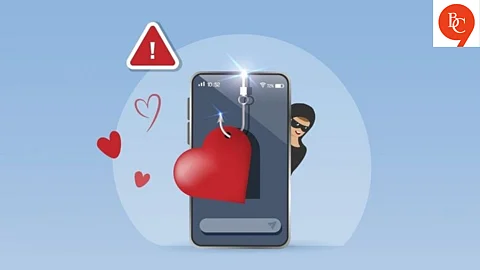

While online dating once promised connection and convenience, it now comes with an unsettling risk: deepfakes.
Artificial intelligence, once limited to sci-fi thrillers, is now creeping into dating apps in the form of AI-generated photos, videos, and even full-blown personas.
The result? An emotional minefield where trust is no longer a given.
What Are Deepfakes Doing on Dating Apps?
Deepfakes are AI-manipulated media—images, audio, or videos—that convincingly alter or fabricate a person’s appearance or identity. In the realm of dating, this technology is being used to:
Create entirely fake profiles using AI-generated faces
Manipulate voice or video messages to impersonate someone else
"Enhance" appearances through overly realistic filters or synthetic content
What begins as an innocent chat on Bumble or Tinder can quickly become a cat-and-mouse game of emotional manipulation. Victims often find out too late that the person they fell for doesn’t exist—or worse, was impersonating someone else entirely.
The Emotional Toll of Falling for a Fake
At the heart of every deepfake dating scam is emotional betrayal. Unlike traditional catfishing, deepfake deception adds a new layer of believability. With tools that mimic facial expressions, voice tone, and body language, AI can now fake affection with chilling precision.
For those who’ve been duped, the fallout is more than embarrassment. It can trigger:
Trust issues and emotional withdrawal
Anxiety over being publicly exposed
Shame, guilt, and self-blame
Trauma from being emotionally manipulated
The Rise of Romance Scams 2.0
Online dating scams are evolving. According to cybercrime reports, the use of deepfake technology in romance frauds is rising. Scammers use realistic-looking avatars to build emotional intimacy before requesting money, gifts, or sensitive information.
What’s even more alarming is how these AI tools are democratizing deception. Anyone with a laptop and minimal coding skills can now generate a “perfect match,” making the digital dating landscape a far more dangerous place.
How to Spot a Deepfake Date
Here are some red flags that your match might be AI-generated or using deepfake content:
Their photos look too polished, with no online presence elsewhere
Video calls are always declined or have poor quality with lagging facial expressions
The same phrases or overly generic replies keep recurring
Their stories feel rehearsed or too emotionally intense too soon
Staying Safe While Swiping
Online dating shouldn’t come at the cost of your emotional or financial safety. Here are a few ways to protect yourself:
Do a reverse image search of their profile photos
Request real-time video calls early in the conversation
Avoid sharing personal or financial information
Trust your instincts—if something feels off, it probably is
Platforms like Tinder and Bumble are starting to roll out verification tools, but until the tech catches up with the threat, self-awareness remains your best defense.
In a world where digital interaction is often the first step to intimacy, emotional honesty is more valuable than ever. The challenge now is ensuring that behind every profile is a real person, with real feelings—not a beautifully designed lie.
